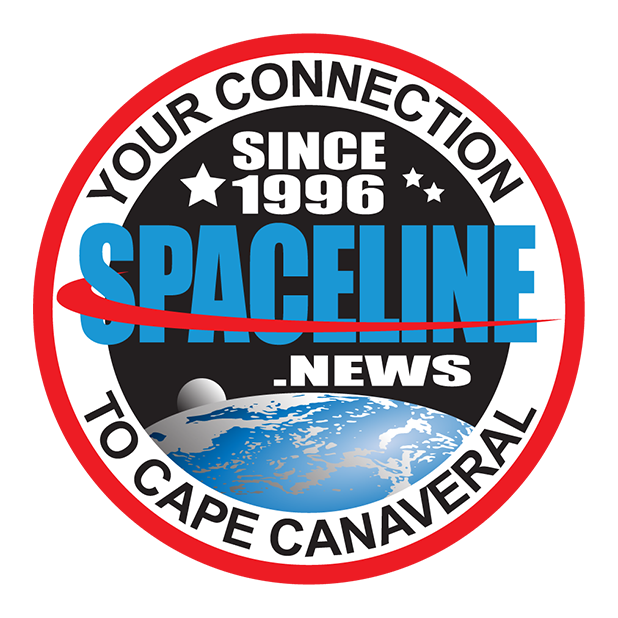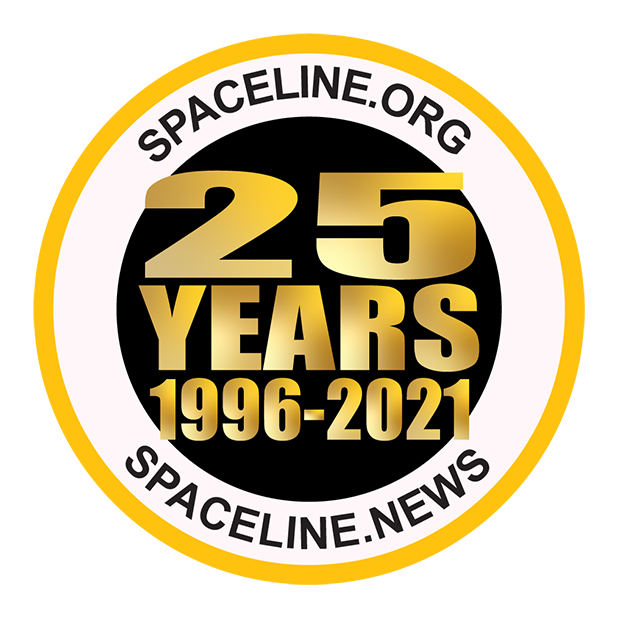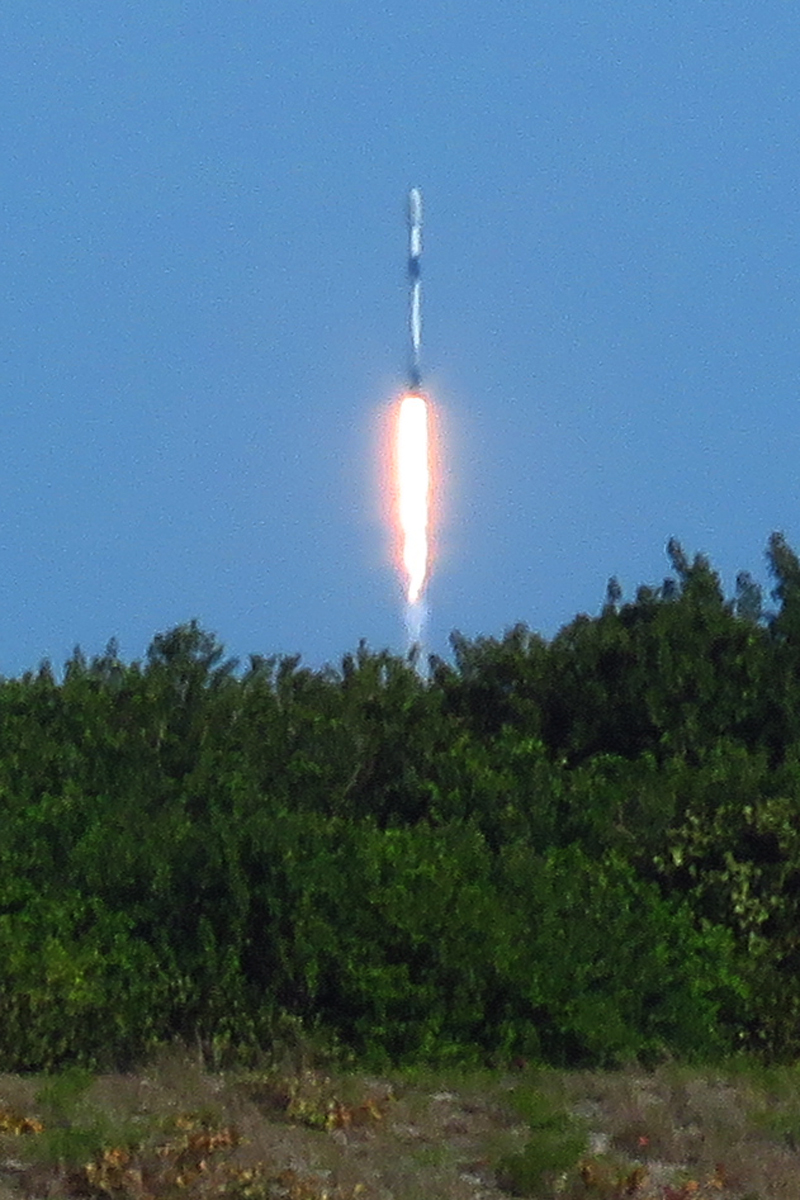
Falcon 9 Starlink 4-8 Launch, Photo Courtesy Carleton Bailie/Spaceline
Falcon 9 Launches 46 Starlink Satellites
February 21, 2022 | Reported by Cliff Lethbridge
A SpaceX Falcon 9 rocket successfully launched 46 Starlink satellites at 9:44 a.m. EST today from Launch Pad 40 on Cape Canaveral Space Force Station. Launch was originally set for February 20, 2022 but was postponed 24 hours due to unacceptable weather conditions in the booster recovery area. The first stage booster employed today was being flown for the eleventh time, having previously supported the Crew Demo-2, ANASIS-II, CRS-21, Transporter-1, Transporter-3 and five Starlink missions. The booster was successfully recovered today with a landing on the "A Shortfall of Gravitas" drone ship positioned on the Atlantic Ocean near the Bahamas. The mission, designated Starlink 4-8, carried 46 Starlink broadband Internet satellites. The launch today brings to a total of 2,137 Starlink satellites launched to date, although not all of these are operational or still in orbit. Starlink is a SpaceX-owned and operated space-based Internet service which currently serves about 145,000 users in more than 25 countries.
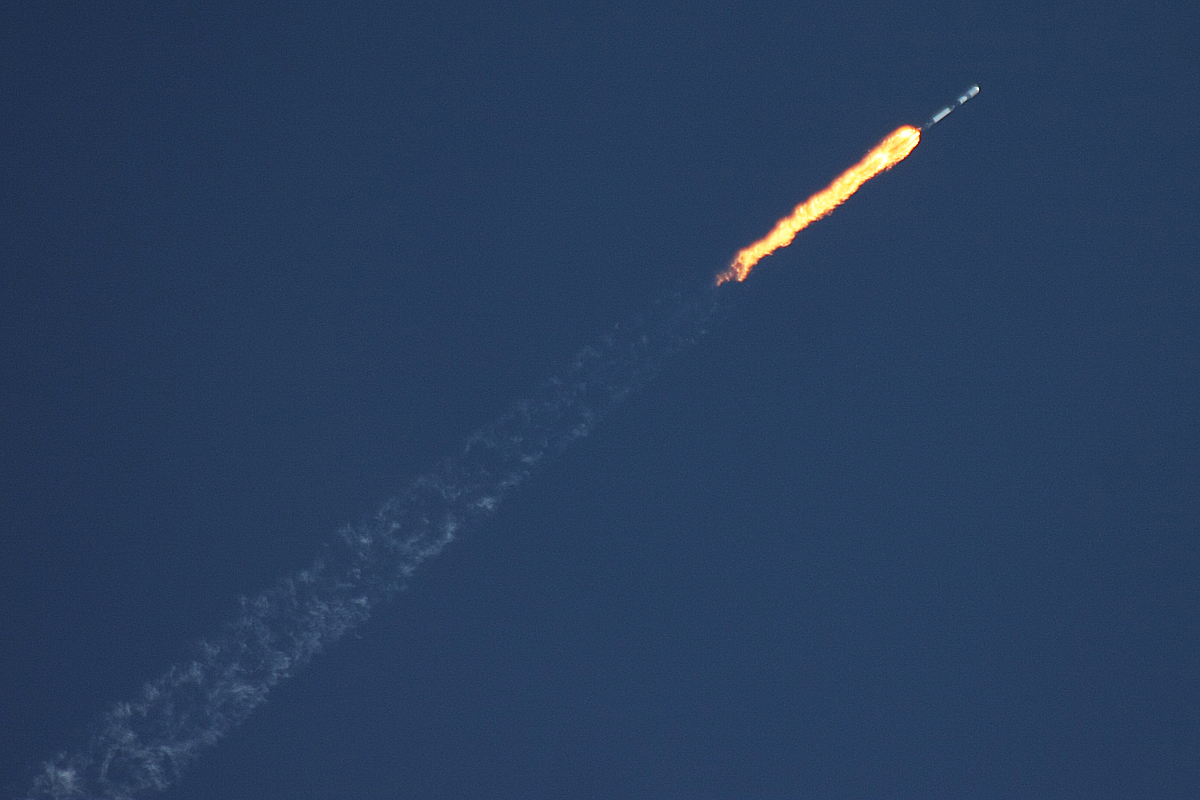
Falcon 9 Starlink 4-8 In Flight, Photo Courtesy Carleton Bailie/Spaceline
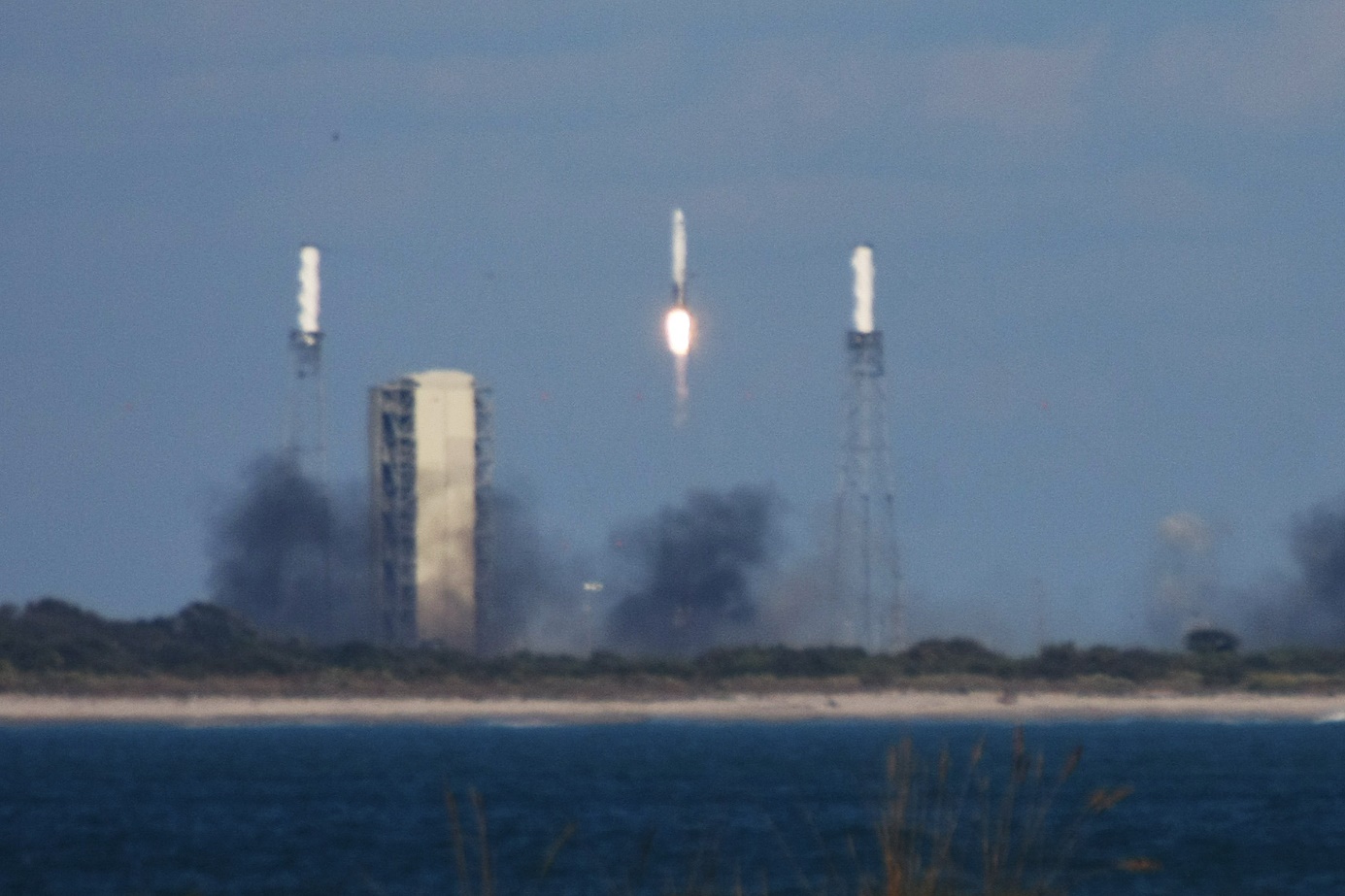
Astra Rocket 3.3 Launch, Photo Courtesy Carleton Bailie/Spaceline
Astra Rocket 3.3 Suffers Apparent Second Stage Failure
February 10, 2022 | Reported by Cliff Lethbridge
An Astra Rocket 3.3 suffered an apparent second stage failure following its maiden launch from Cape Canaveral. This was the third launch attempt for the launch the rocket, having been scrubbed on February 5, 2022 due to a range radar system failure and scrubbed after a launch pad abort due to a "minor telemetry issue" on February 7, 2022. Today's launch was conducted from Launch Pad 46 on Cape Canaveral Space Force Station. In the live stream photography of today's launch it appeared that the first stage performed well through engine cutoff and stage separation, but the second stage appeared to tumble out of control several minutes after launch. The cause of the failure has not been released.
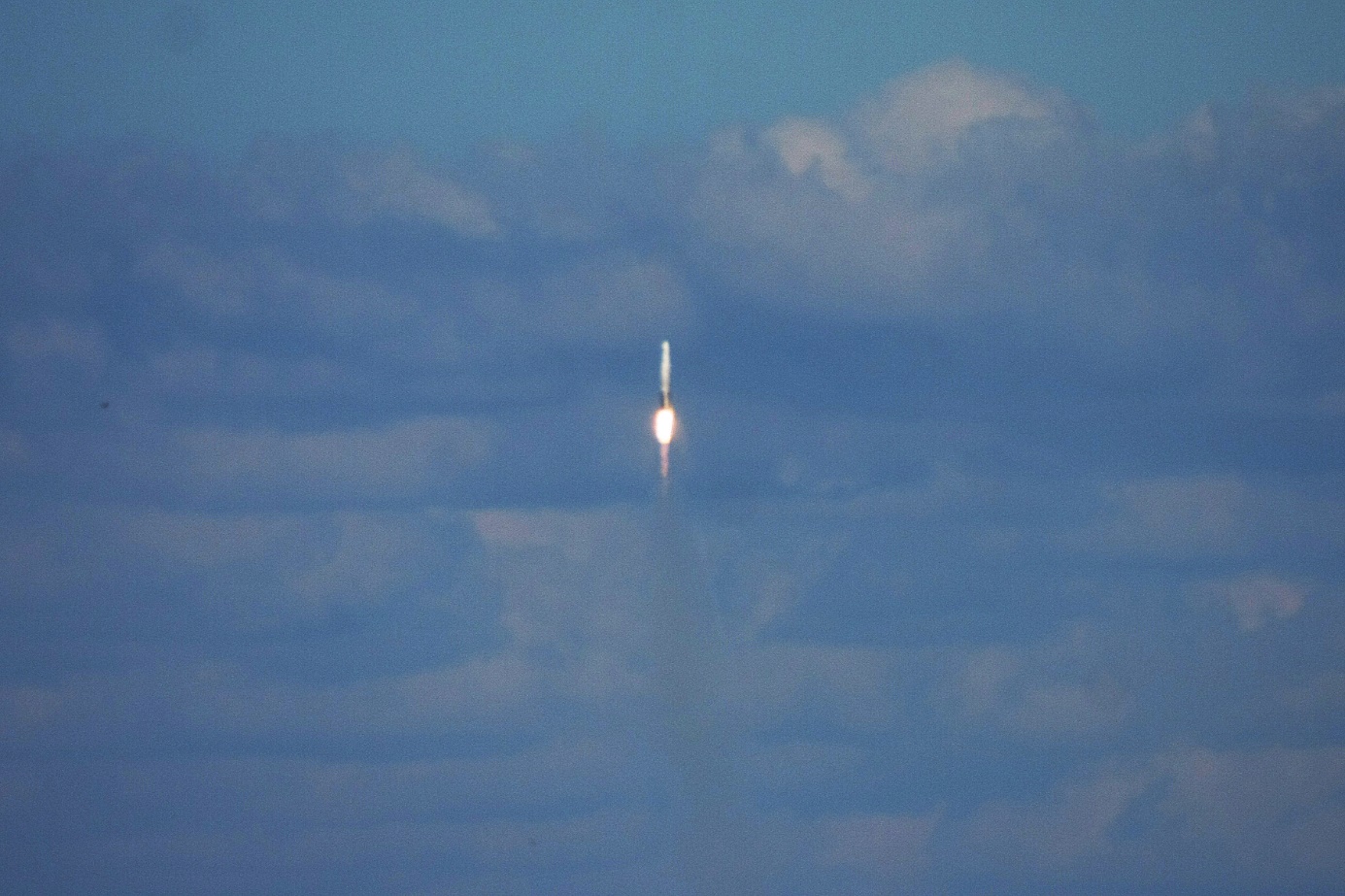
Astra Rocket 3.3 In Flight, Photo Courtesy Carleton Bailie/Spaceline
Astra said in a statement, "We experienced an issue during today's flight that resulted in the payloads not being delivered to orbit. We are deeply sorry to our customers at NASA and the small satellite teams. More information will be provided after we complete a data review." The rocket was intended to send four NASA-sponsored cubesats in a mission to test the ability of a Venture Class Launch Services (VCLS) vehicle to carry small satellites into orbit. The mission was designated VCLS Demo-2, while the payloads were designated ELANA-41 (Educational Launch of Nanosatellites-41). In addition to being their first launch from Cape Canaveral, this was the first Astra attempt to deliver satellites to orbit.
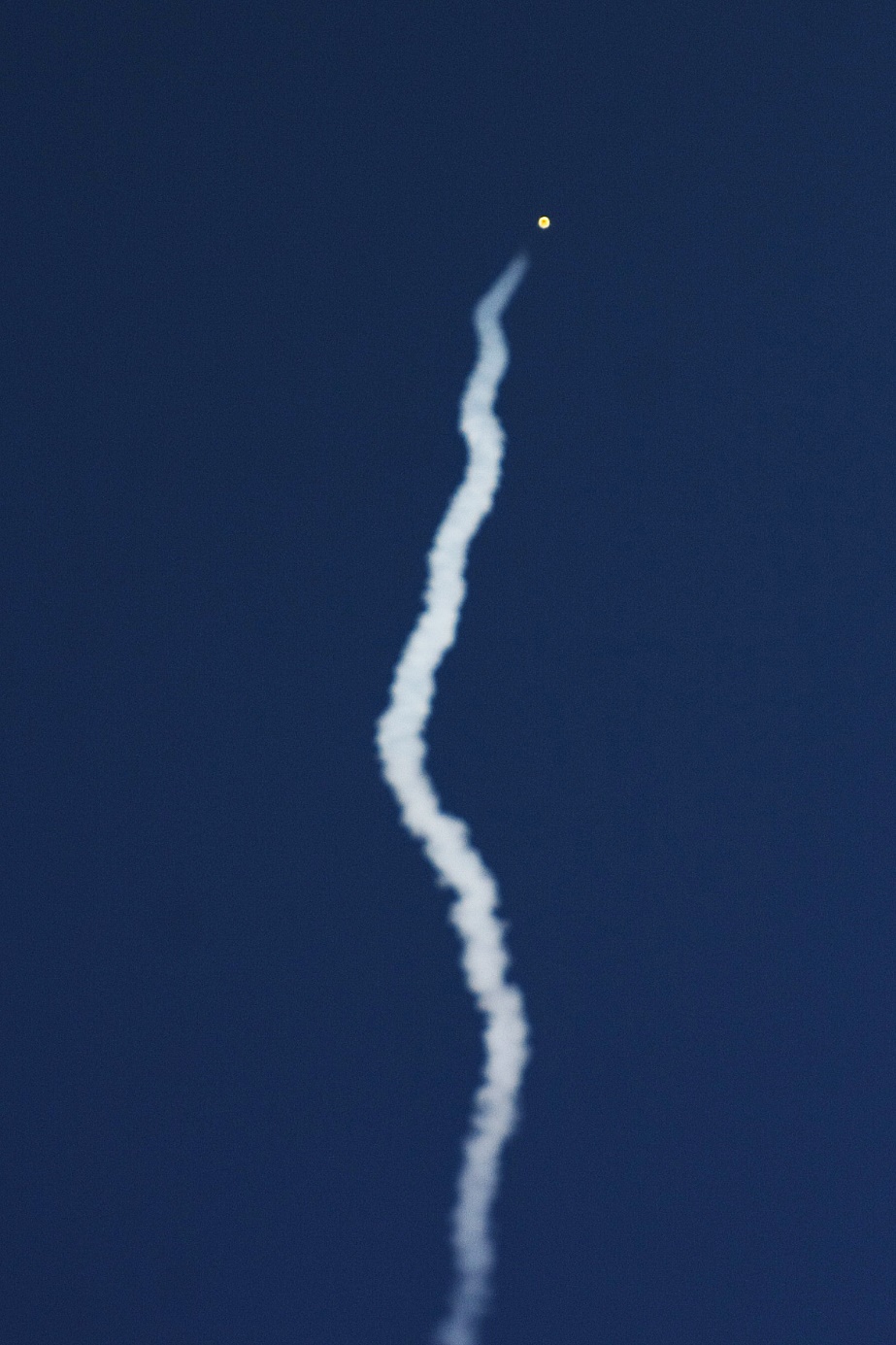
Astra Rocket 3.3 Downrange, Photo Courtesy Carleton Bailie/Spaceline
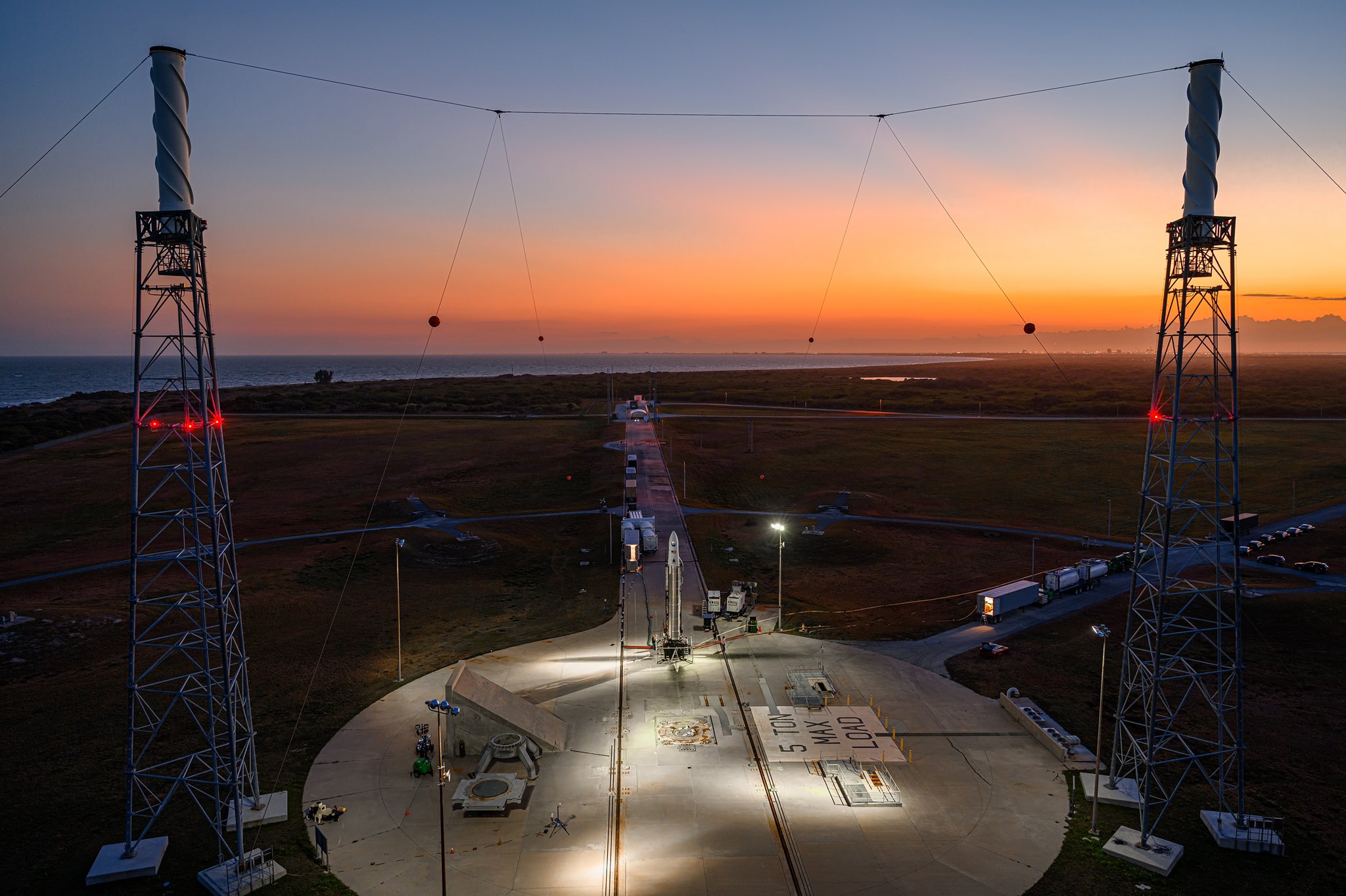
Astra Rocket 3.3 On Launch Pad 46, Photo Courtesy Astra
Astra Rocket 3.3 Suffers Launch Pad Abort
February 7, 2022 | Reported by Cliff Lethbridge
An Astra Rocket 3.3 suffered a launch pad abort today on its second scheduled launch from Cape Canaveral. The first launch attempt on February 5, 2022 was scrubbed due to the failure of a range ground based radar system. Today's launch window extended from 1:00 p.m. to 4:00 p.m. EST. Launch was postponed to 1:50 p.m. EST to allow analysis of upper altitude winds. Launch at 1:50 p.m. was aborted at Launch Minus 0 Seconds, just milliseconds following ignition of the rocket's five first stage engines. Astra said the cause of the abort was traced to a "minor telemetry issue" but no additional information was released. Teams are troubleshooting the issue and a rescheduled launch date has yet to be announced. This will be the first Astra launch from Cape Canaveral and will be conducted from Launch Pad 46 on Cape Canaveral Space Force Station. The rocket will carry four cubesats in the first Astra launch to deploy satellites.
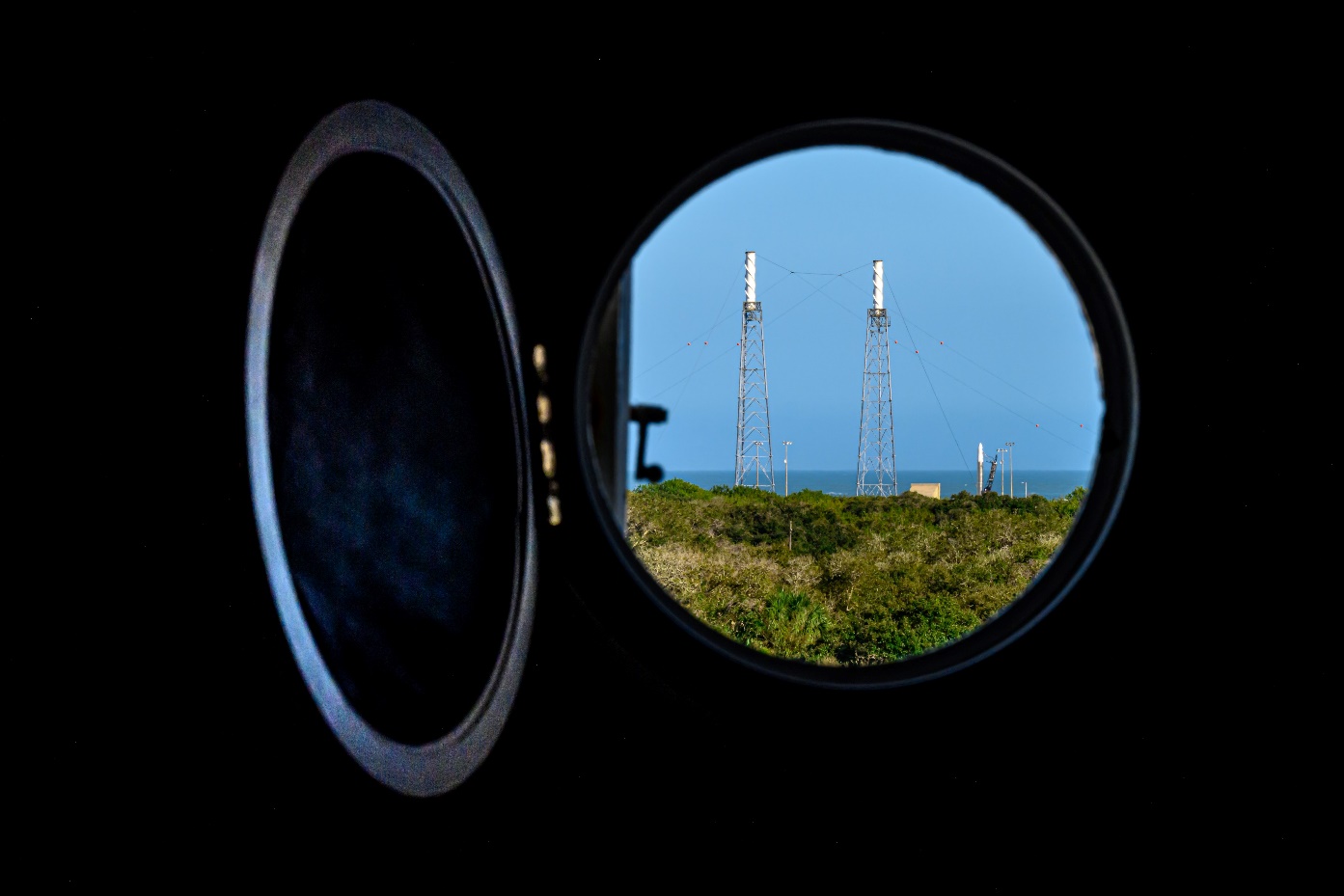
Astra Rocket 3.3 On Launch Pad 46, Photo Courtesy Astra
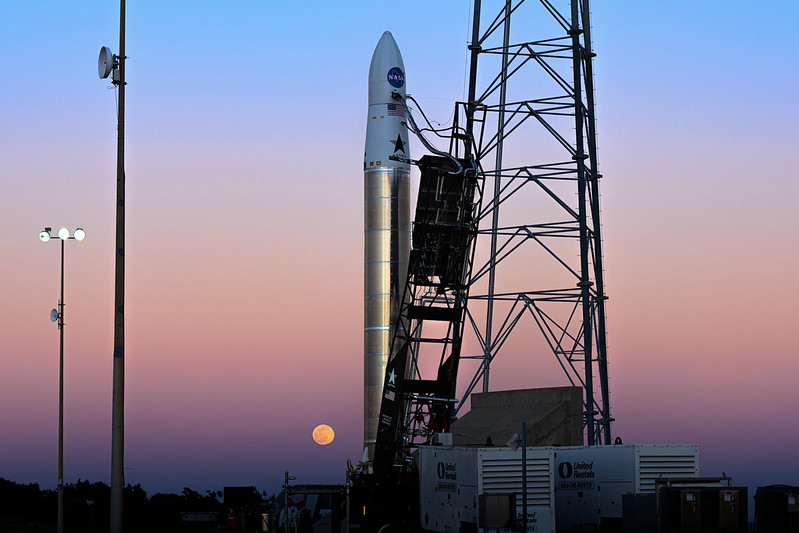
Astra Rocket 3.3 On Launch Pad 46, File Photo Courtesy Astra
Astra Rocket 3.3 Launch Scrubbed
February 5, 2022 | Reported by Cliff Lethbridge
Launch of an Astra Rocket 3.3 scheduled for today has been scrubbed due to the failure of a range asset. This will be the first Astra launch from Cape Canaveral and will be conducted from Launch Pad 46 on Cape Canaveral Space Force Station. Launch has been rescheduled for tomorrow, February 6, 2022 during a launch window which extends from 1:00 p.m. to 4:00 p.m. EST. The rocket will be performing the ELANA-41 mission for NASA which consists of four cubesats. This will be the first time Astra has launched satellites into space.
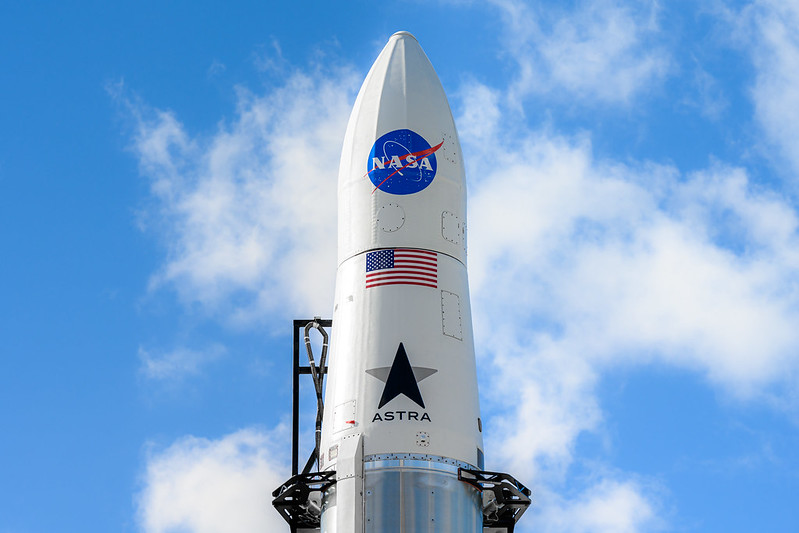
Astra Rocket 3.3 On Launch Pad 46, File Photo Courtesy Astra
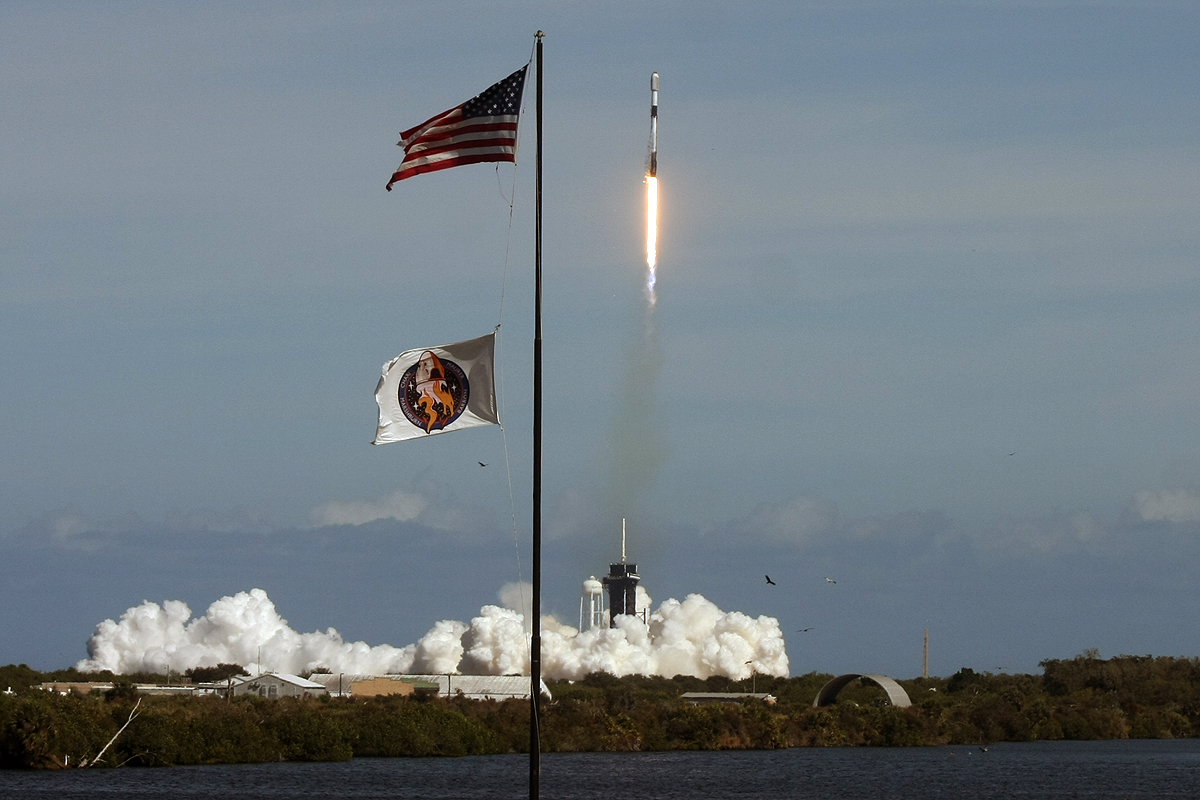
Falcon 9 Starlink 4-7 Launch, Photo Courtesy Carleton Bailie/Spaceline
Falcon 9 Launches 49 Starlink Satellites
February 3, 2022 | Reported by Cliff Lethbridge
A SpaceX Falcon 9 rocket successfully launched 49 Starlink broadband Internet satellites at 1:13 p.m. EST today from Launch Pad 39A at the Kennedy Space Center. The first stage booster employed today was being flown for the sixth time, having previously supported the Crew-1, Crew-2, SXM-8, CRS-23 and IXPE missions. The booster was successfully recovered today with a landing on the "A Shortfall of Gravitas" drone ship positioned on the Atlantic Ocean near the Bahamas. The mission, designated Starlink 4-7, brought to a total of 2,091 Starlink satellites launched to date, although not all of these are operational or still in orbit. The satellites were deployed about 15 minutes after launch and will ultimately operate at an inclination of 53.2 degrees at an altitude of about 335 miles. Starlink is a SpaceX-owned and operated space-based Internet service which currently serves about 145,000 users in over 25 countries.
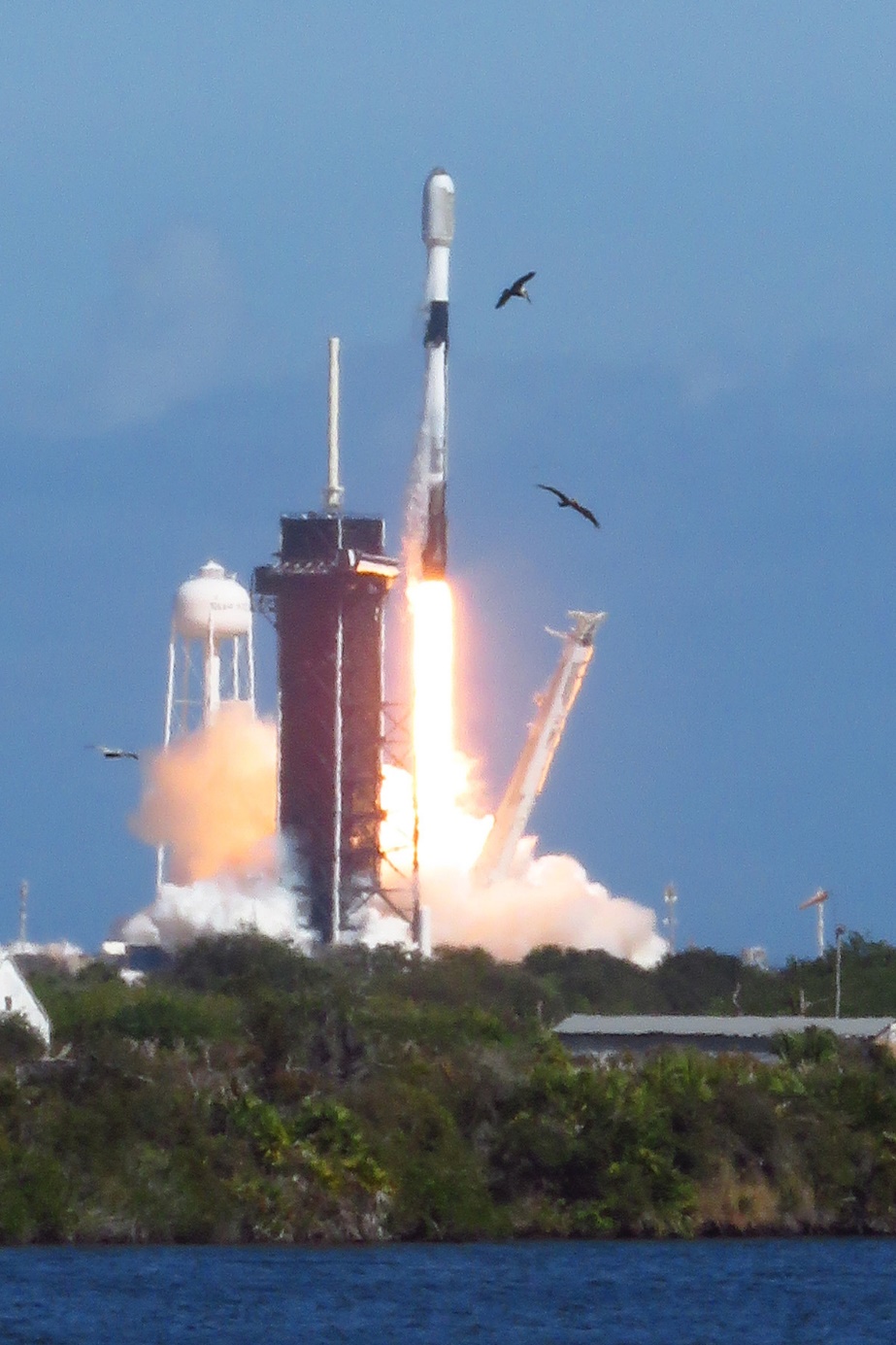
Falcon 9 Starlink 4-7 Launch, Photo Courtesy Carleton Bailie/Spaceline
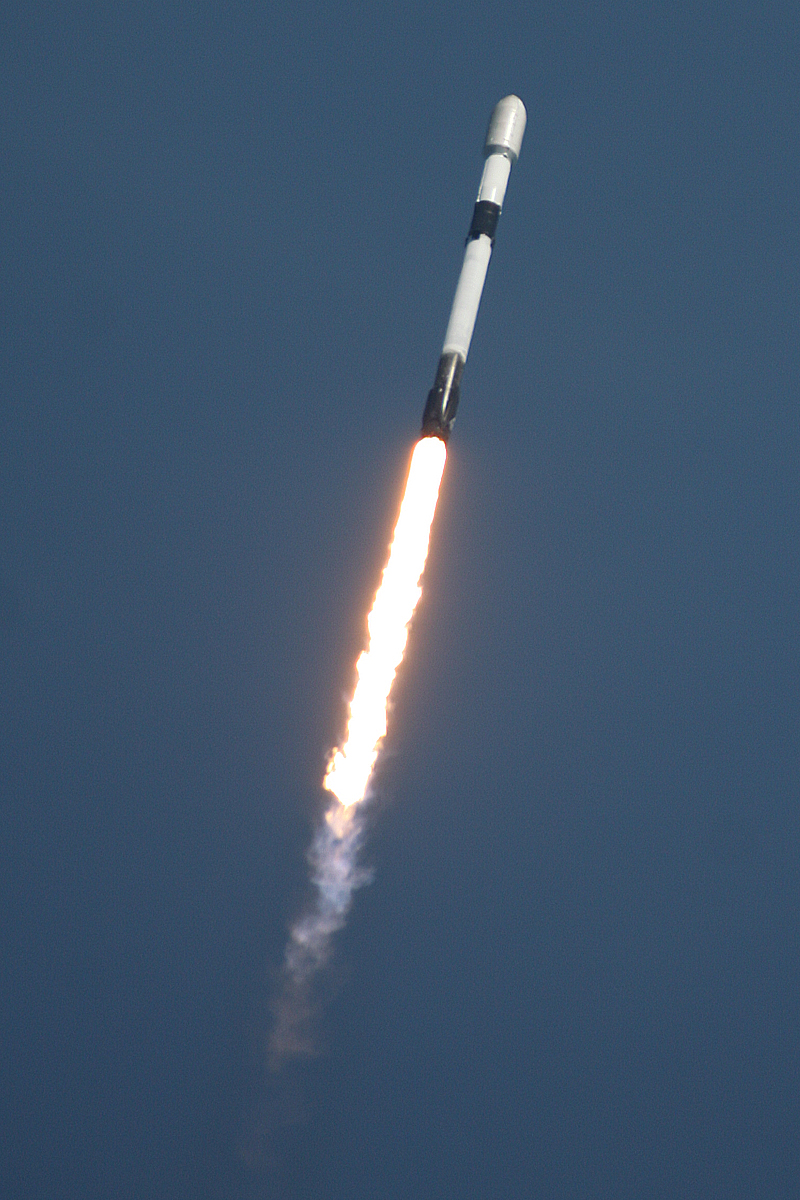
Falcon 9 Starlink 4-7 In Flight, Photo Courtesy Carleton Bailie/Spaceline
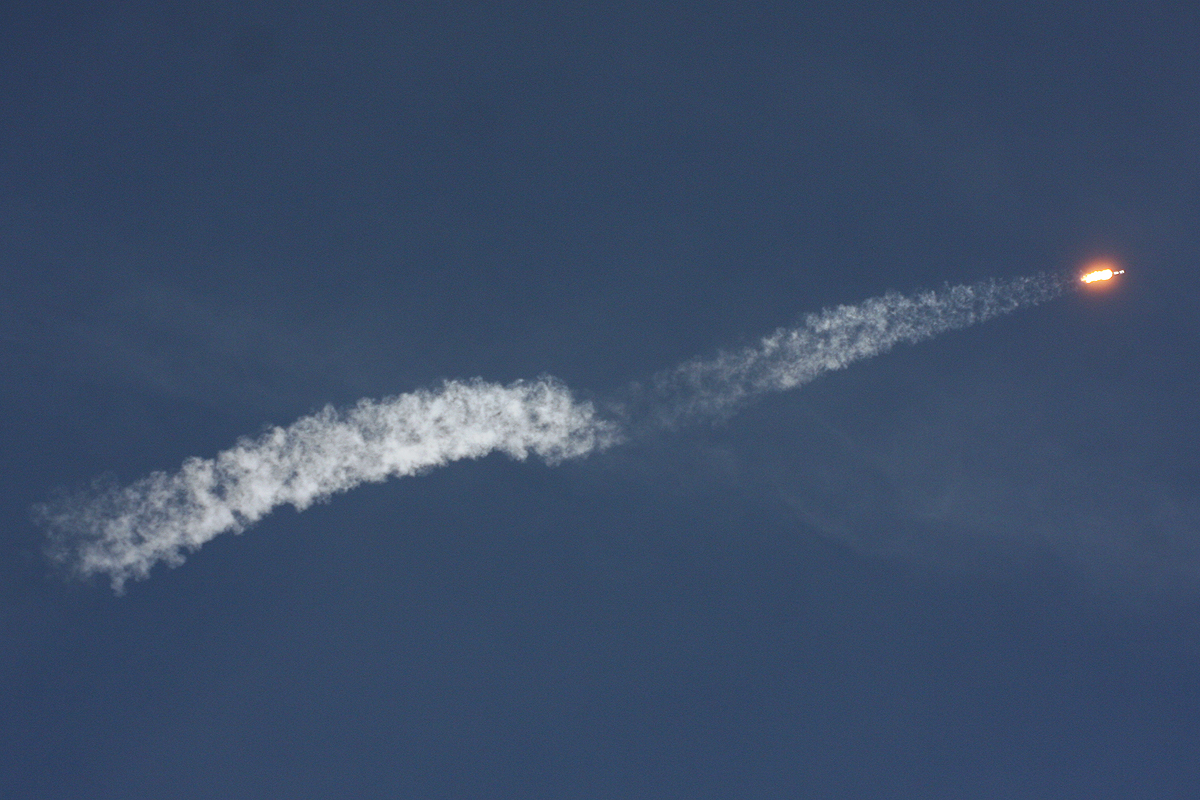
Falcon 9 Starlink 4-7 Downrange, Photo Courtesy Carleton Bailie/Spaceline


